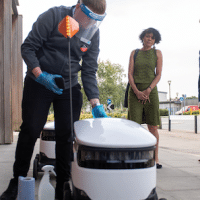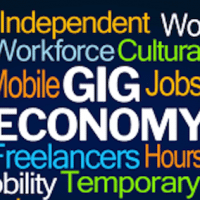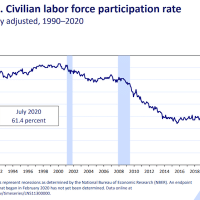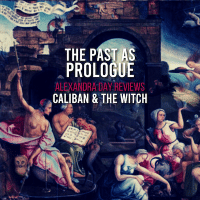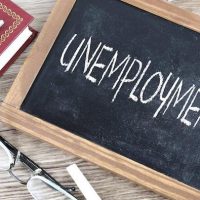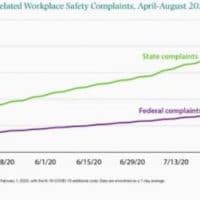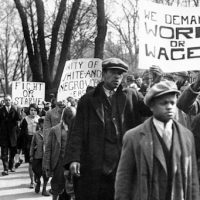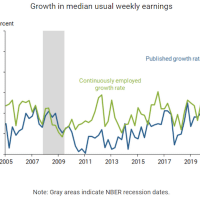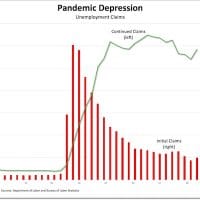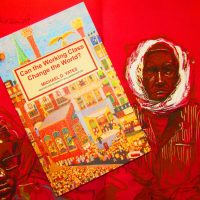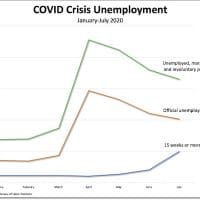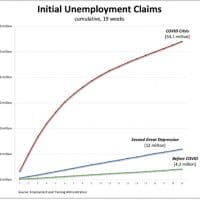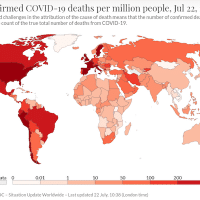-
Does automation spell the end of capitalism?
Capitalism will not ‘automatically’ morph into some ‘postcapitalist’ or socialist system due to technology replacing the human workforce. As the MARX MEMORIAL LIBRARY explains, ending capitalism will require a conscious, collective action on the part of ‘the many’—the working class.
-
Jade, For Hire! The Mystery of the Missing Worker.
Looking for work during a race and class war ain’t easy, its hard enough already–why were they fired in the first place from… Jamazon.com! Find out this week in… Jade for Hire!
-
Study shows Blacks and Latinos make up bulk of temporary “Gig” workers
Eighty-three percent of blue-collar temp assignments are staffed by non-white workers in Illinois, a state where non-white workers are just 35 percent of the workforce.
-
The pillage of resources: A glimpse into the lives and labor of marginalized women
Lives of women dependent on natural resources, such as land, forests, rivers, and mountains, are being tossed asunder by the appropriation and expropriation of these resources by corporations and the state.
-
America’s labor crisis
We face a multifacited labor crisis. One of the most important aspects of this crisis is the U.S. economy’s diminishing capacity to provide employment. This development is highlighted in the chart below, which shows the trend in civilian employment over the last thirty years. Civilian employment includes all individuals who worked at least one hour for […]
-
The Past as Prologue: Caliban & the Witch – a Review
Alexandra Day reviews Silvia Federici’s seminal work, Caliban and the Witch: Women, the Body and Primitive Accumulation.
-
Kill the Bill, or it will kill us all
Indonesia’s trade unions and social movements are taking to the streets against anti-worker legislation.
-
National strike: Indonesia rises up against new anti-worker law
Hundreds of thousands of workers and students in Indonesia have taken to the streets in a powerful wave of strikes and demonstrations opposing the enactment of a new set of laws that would dramatically weaken the rights of the working class and environmental protections.
-
A missing pledge in the 2020 Democratic Party platform
For 52 years—from 1936 to 1988—the Democratic Party pledged support for the achievement of full or maximum employment.
-
There is a union difference: mortality rates from COVID-19 are lower in unionized nursing homes
We need strong unions, all of us. Tragically, even during the pandemic, businesses continue to aggressively resist worker attempts at unionization. And recent decisions by the NLRB only add to worker difficulties.
-
Popular radicalism in the 1930s
At a time when unemployment is skyrocketing in the U.S. and millions of out-of-work Americans have been abandoned by the federal government, it may be of interest to consider how an earlier generation responded to an even greater crisis, the Great Depression (1929-1936).
-
Times remain hard, especially for low-wage workers
The current economic crisis has hit workers hard. Unemployment rates remain high, with total weekly initial claims for unemployment insurance benefits continuing to grow.
-
Chart of the day
The number of continued claims for unemployment compensation, while below its peak, rose from the previous week and was more than 29 million American workers—a figure that includes workers receiving Pandemic Unemployment Assistance.
-
Forging unity within the working class: an interview with Michael D. Yates
The ruling class always tries to divide the working class. We must make certain that the working class is not divided internally and we can draw on the past to find examples of working-class organizations that have actively worked to generate a cohesive and class-conscious membership.
-
“Your Economics Professor Is Almost Certainly a Charlatan”
Mary Filippo began in 2004 to audit economics classes in the hope that she could “learn something about globalization. Does it really help people in developing countries? What are its downsides?” She did not learn these things.
-
The pandemic, technology, and remote work: the corporate push for greater control over workers’ lives
The U.S. economy is undergoing a major transformation largely driven by the coronavirus pandemic. One hallmark of that transformation is the explosion in what is called “remote” work.
-
Chart of the day
The American economy gained 1.8 million jobs last month, even as the coronavirus surged in many parts of the country and newly reintroduced restrictions caused some businesses to close for a second time.
-
Chart of the day
All told, 54.1 million American workers have filed initial unemployment claims during the past nineteen weeks.
-
Pandemic worsens, resistance will follow
World leaders like Trump and Johnson trying to get back to business as usual while the virus continues to spread are deliberately sacrificing public health, writes John Clarke.
-
Beyond work? The shortcomings of post-work politics
Mikael Lyngaas argues that post-work theorists ranging from Bob Black to Srnicek and Williams are utopian socialism for the current era.

